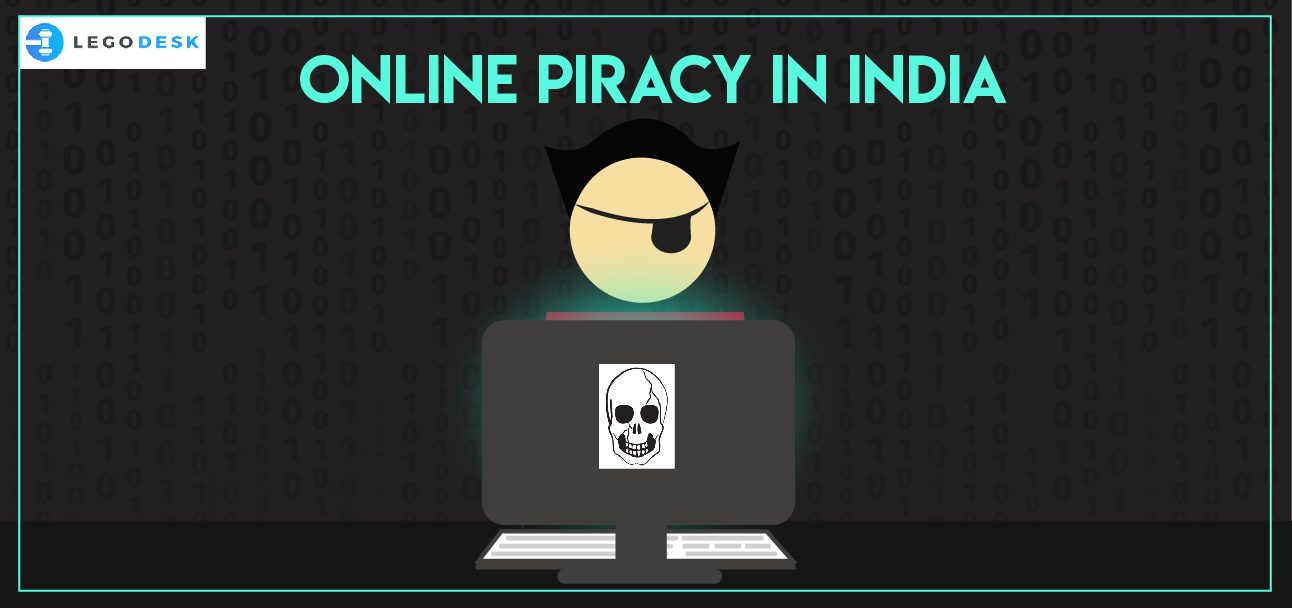
Piracy can be understood as the uncertified use of someone else’s work. Merriam-Webster’s dictionary defines piracy as the unauthorized use of another’s production, invention, or conception especially in infringement of copyright. The unapproved duplication of another person’s creation amounts to the violation of his copyright protection. Along with the technological developments over the years, piracy has become more rampant. The movie industry is the most vulnerable to piracy. Pirated content can be found very often downloaded from different Torrent websites. Downloading any protected content from torrents, be it a simple video, song or a movie, amounts to copyright violation of the owner.
In order to protect the interests of creators and distributors, the government had to take strict measures. The Copyright (Amendment) Act, 2012 has amended piracy laws in India. One of its main objectives was to curb digital piracy. Section 65(A) and Section 65(B) was inserted in the act.
Section 65(A) was provided for the Protection of Technological Measures. It states that any person who circumvents an effective technological measure applied for the purpose of protecting any of the rights conferred by this Act, with the intention of infringing such rights, shall be punishable with imprisonment which may extend to two years and shall also be liable to fine.
Section 65(B) was provided for the Protection of Rights Management Information. It states that any person, who knowingly- (1) removes or alters any rights management information without authority, or (2) distributes, imports for distribution, broadcasts or communicates to the public, without authority, copies of any work, or performance knowing that electronic rights management information has been removed or altered without authority, shall be punishable with imprisonment which may extend to two years and shall also be liable to fine.
The Indian Judiciary has adopted this new concept of John Doe orders. In this order, the identity of the defendant is unknown while filing the petition and only a small description is provided. Producers of the Indian Film Industry are using these orders to deal with the problem of online piracy. By this order, any suspected website can be blocked before the release of new movies. But these orders are granted only after careful investigation of the circumstances.
Whenever a new movie is released, the makers of the movie own its copyrights. Distribution rights have to be purchased. But when the movie is uploaded on some website for other people to download, without due permission of the makers, it constitutes to be an illegal act and everyone involved in this process is punished. Movies can be downloaded from those websites which provide freely licensed content. But most of the content provided by these websites could be pirated, and downloading it would lead to the producer’s copyright infringement. Downloading movies is not illegal unless the movie is being provided by a licensed website and it doesn’t breach the copyright protection. Downloading torrents is also not illegal, downloading protected content is. Torrenting is an effective tool for file sharing and it should not be used to share pirated content. It has been found lately that people are using torrents to upload pirated content. Distributing or downloading them leads to the owner’s copyright infringement.
Piracy cases in India –
- In the recent case, where the movie ‘Udta Punjab’ was leaked online two days before it’s an official release, a complaint was filed by the movie’s producers. The Cyber Crime cell of Mumbai police arrested the 25 year old for uploading the movie on his website and was charged under the Information Technology Act.
- In 2012, a complaint was filed by a movie channel who had purchased the distribution rights of the movie ‘Bachelor Party’, following which, the Kerala Anti-piracy cell traced down the IP addresses of over a 1000 people who were involved in the illegal upload and download of the movie and arrested them.
- In 2015, the Delhi High Court passed an order restraining the websites from streaming or broadcasting the movie ‘Piku’ online, after a petition for the same was filed by the makers of the movie.
Online Piracy is a big problem in India. It has come into the government’s notice and appropriate measures have been taken by the government to protect the rights of copyright owners. The formulation of Digital Rights Management (DRM) provisions and John Doe orders have proved to be effective. With sufficient precautions and proper awareness, piracy can be reduced.
References-
- Copyright Act, 1957
- Copyright (Amendments) Act, 2012
- Merriam-Webster’s Dictionary

